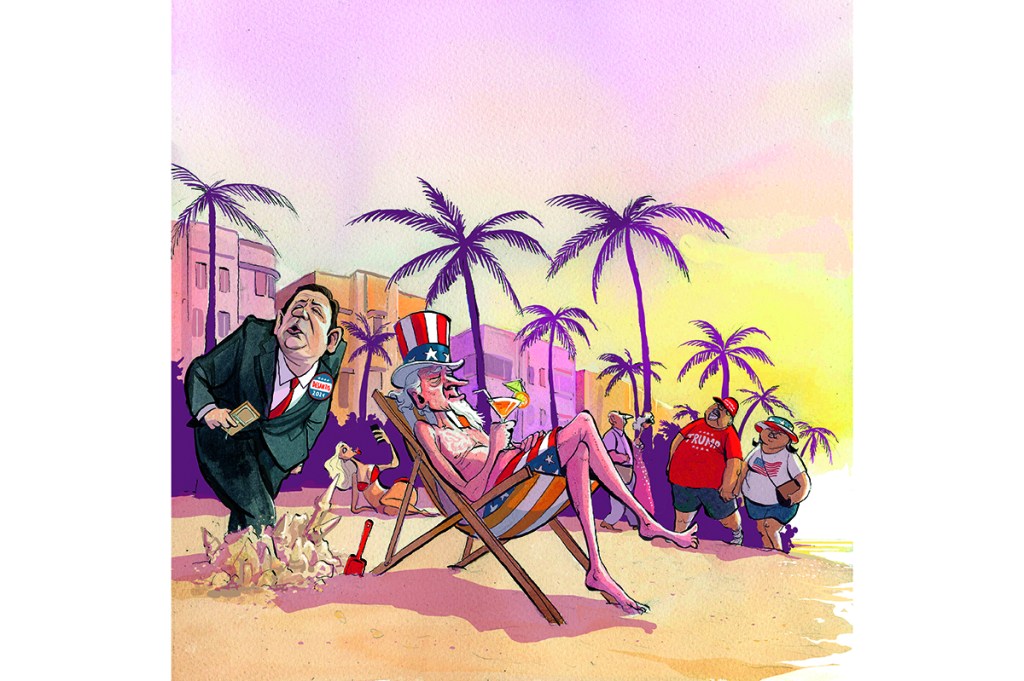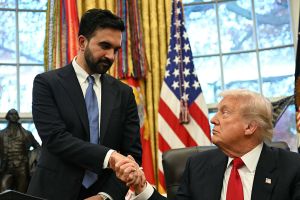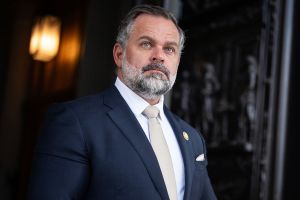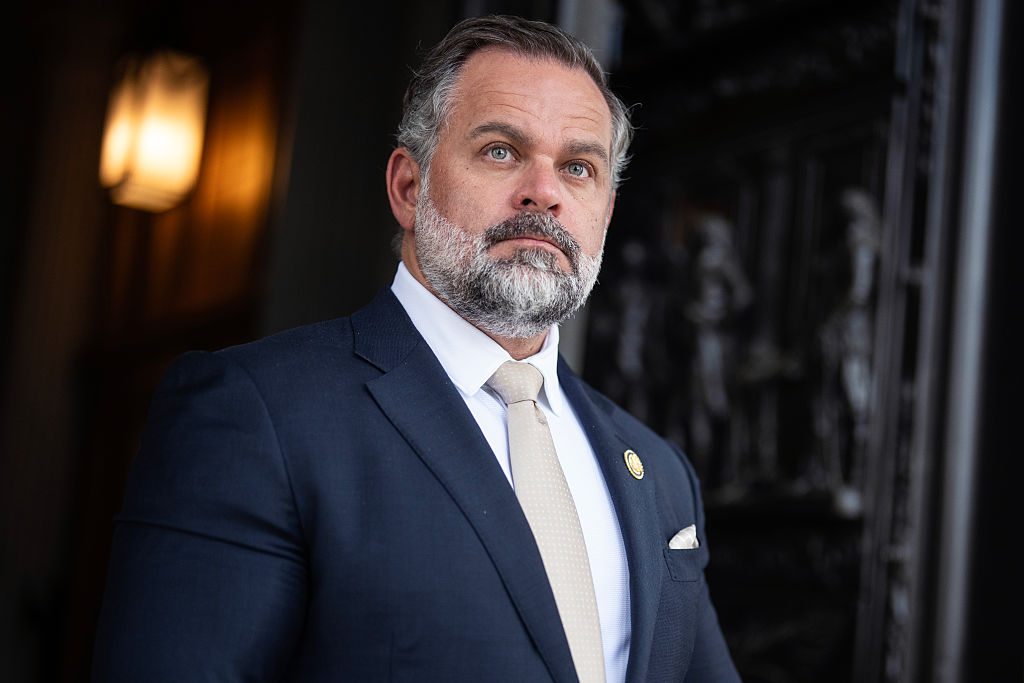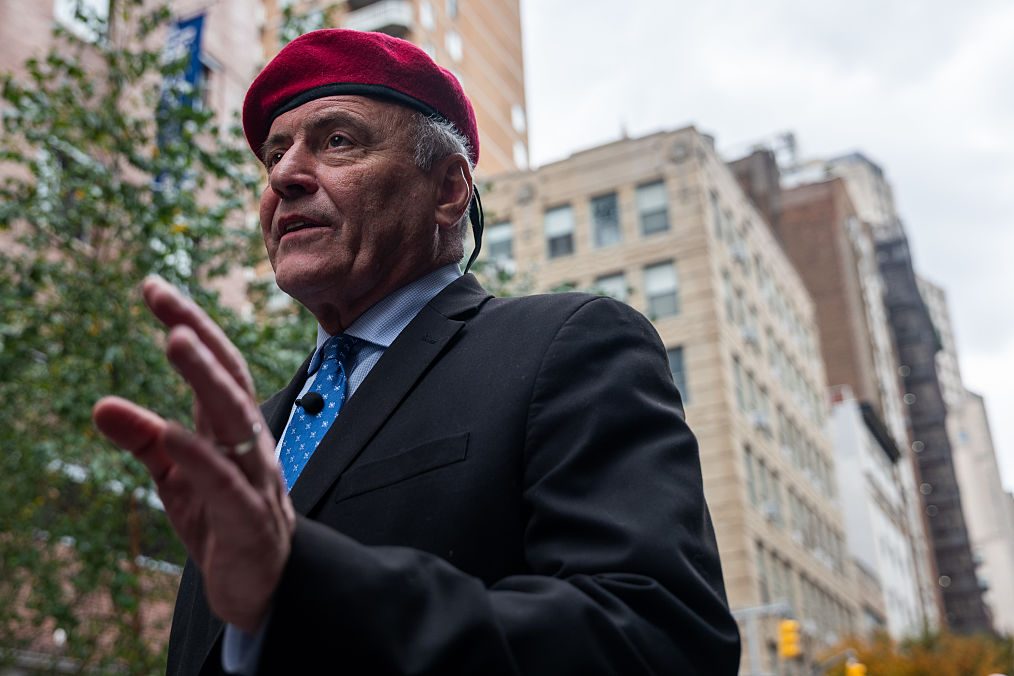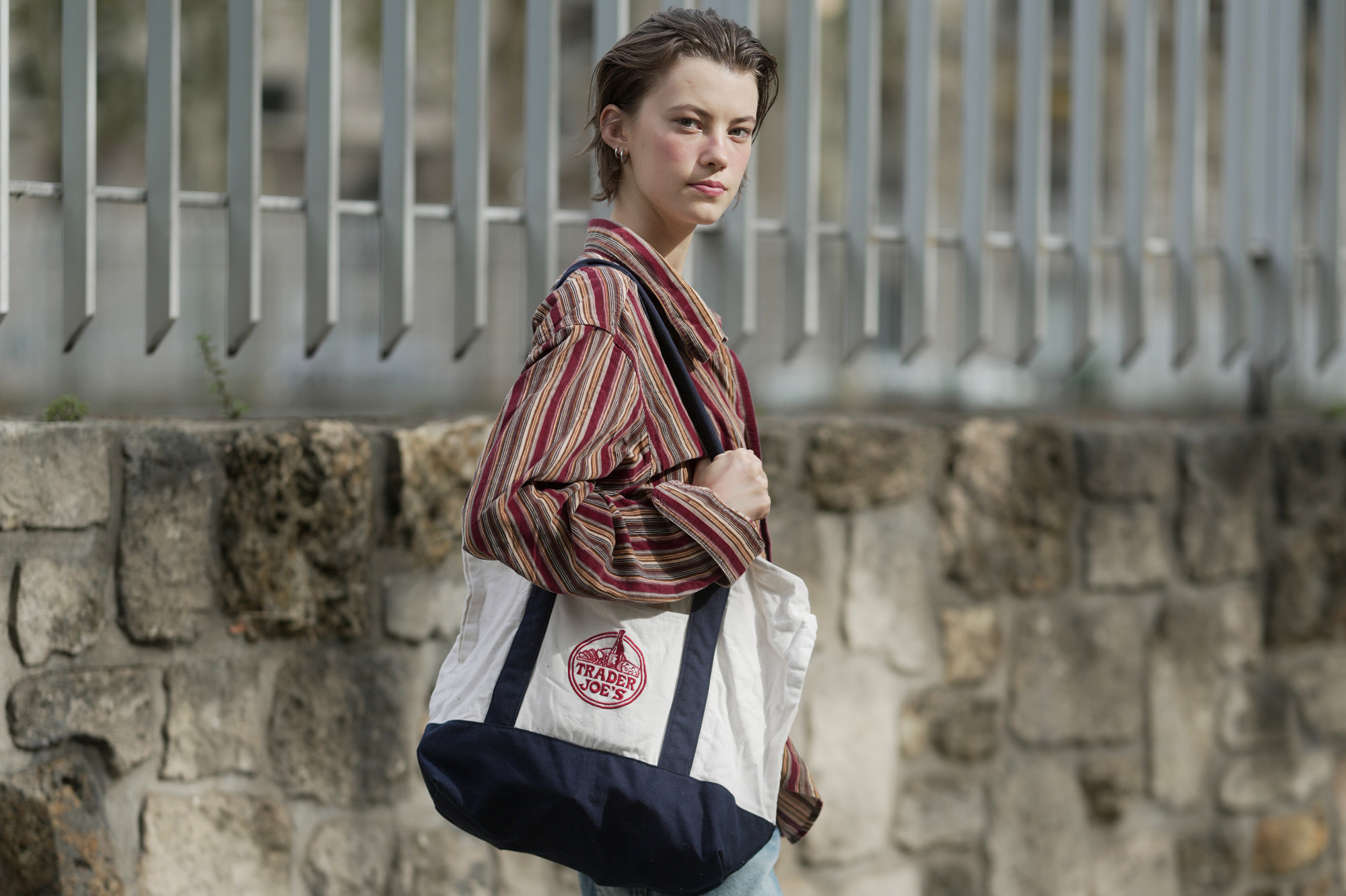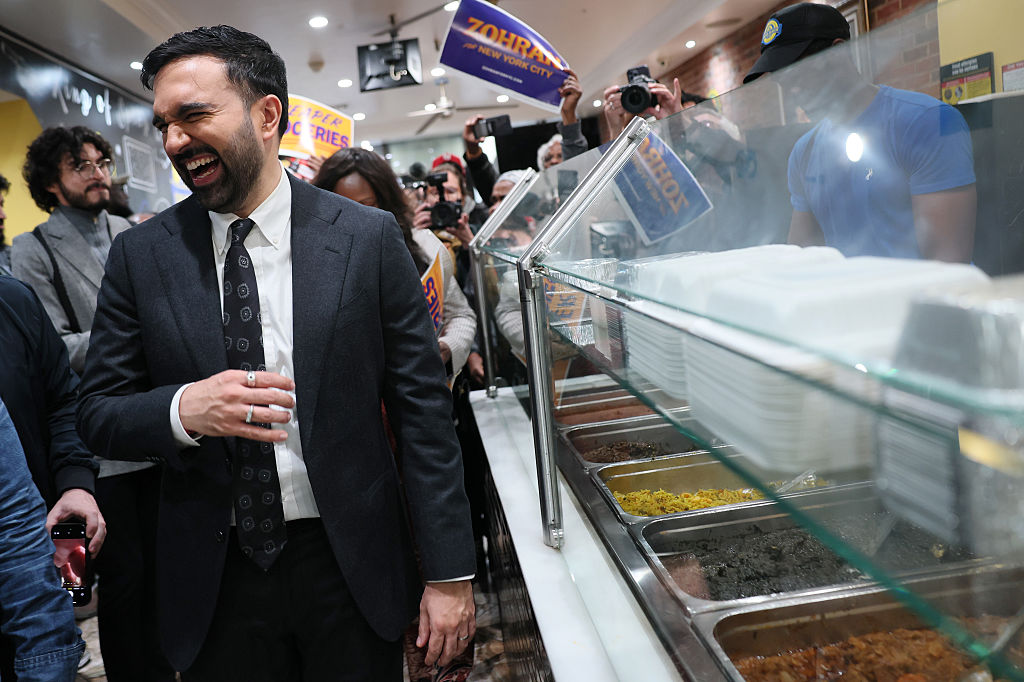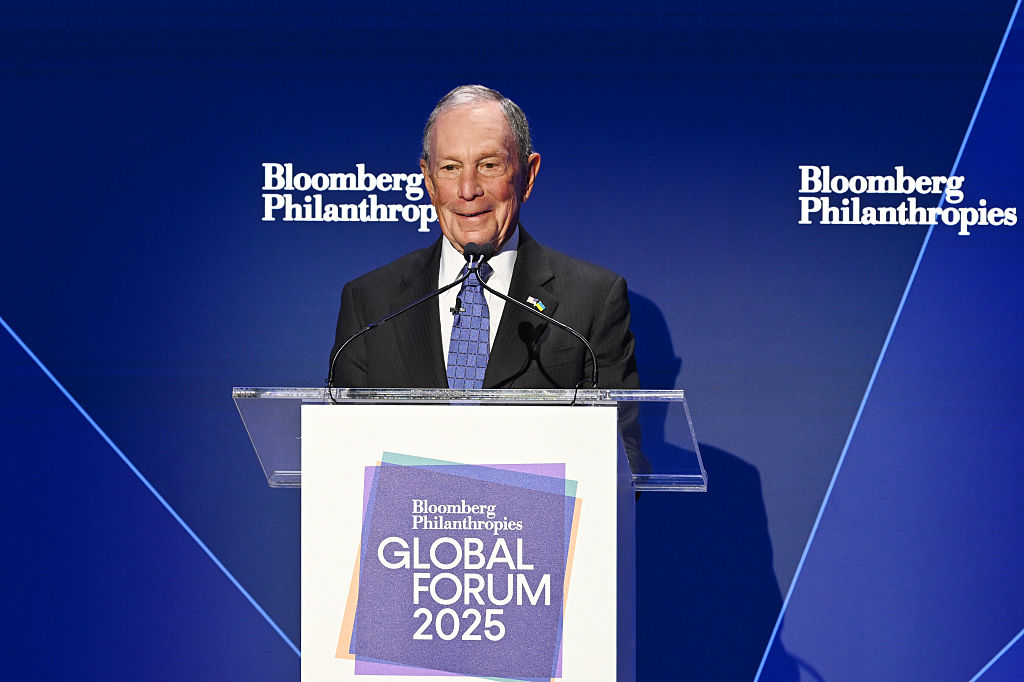“I thank God for this place.” It might seem a weird thing to say, unapologetically earnest and deeply uncool, but, in Florida, it’s very common to overhear someone saying exactly this. On the beach. By a pool. In a restaurant. At the checkout line at Publix.
Some other phrases you hear a lot: “I wish we had made the move sooner.” “I feel like I’ve added years to my life.” “Living the dream.” “Another day in paradise.”
It is a unique moment in Florida’s history. The feeling of gratitude is very real. Millions of people seem to have woken up one day and decided they had to become Floridians right away. I am among them.
How many exactly is unclear. The US Census estimates 221,000 people moved to Florida between July 2020 and July 2021. Florida’s Office of Economic and Demographic Research has the number at an estimated 329,717 between April 2020 and April 2021. Whatever the exact number, the flow is overwhelmingly one-way. And those not moving to the Sunshine State are very likely talking about it.
I have lived in other places central to the national conversation. I always enjoyed the reaction of “oh, Brooklyn, wow!” to my hometown. (I wouldn’t say New York, I’d say Brooklyn.) Brooklyn had its pluses. Our delis were better than your delis. So was our pizza. Our accent is world-renowned. The people are sharp.
But a lot of what made Brooklyn so famous happened long ago. You can associate the borough with stickball and open fire hydrants, Jackie Robinson and egg creams, but even 1980s Brooklyn already wasn’t that. Immigrants made Brooklyn their first stop before they moved on out to Staten Island, New Jersey and beyond. Hipster Brooklyn was a thing but the hipsters became yuppies and their artist lofts became condos. Lots of famous people came from Brooklyn. Lots of non-famous people came from Brooklyn too. Everyone’s grandfather was from Brooklyn. Our importance was historic. We were not trying to preserve something in Brooklyn because that thing had long passed. What we had were remnants. Living there was a battle and every night we could declare victory.
Never in my time living in my beloved Brooklyn was there much sense of the need to preserve the place. We never warned newcomers to make sure they voted right lest they change the culture we had worked so hard to achieve. Florida is another story.
Florida isn’t holding on to a version of itself from long ago. It’s alive and it’s now. It’s not just having a “moment.” Nightclubs have moments. People are uprooting their entire lives and making a brand-new start of it. In Florida.
While newcomers like me, especially from places like New York, may hold the state up to comparison, native Floridians don’t feel nearly as competitive.
But while I’m comparing: there is a state pride in Florida that I haven’t seen in New York in a long time. “FloGrown” decals on the backs of cars are standard, even in my bluer new south Florida home. I’m from here and you new arrivals better recognize that. Those who got here before the pandemic freedom rush are particularly proud. They discovered the cool band when they were still rocking the local bars. They’re the early adopters, the ones who were right all along.
With that Florida pride comes anxiety. The other state with a long history of strong pride is, of course, Texas. Texans have long known they’ve had a good thing going, a good thing in danger of being destroyed at any moment by the influx of people from a state that used to be prideful too. Like New York, California is holding on to a heyday long since passed, and Texans are meeting the people who’ve figured this out.
Florida has internalized the lesson of Texas. You can’t build something worthwhile and then surrender it to people who, although they are escaping a place that has begun to collapse, show no evidence of understanding why that collapse is happening. People move for all kinds of reasons, like weather or taxes. Not all of them realize the role they, and their votes, may have played in creating the chaos in their rearview mirrors. So far, the influx of people to Florida is indeed “voting right.” For the first time ever, registered Republicans outnumber registered Democrats in Florida, by over 100,000.
It’s impossible to highlight Florida’s renaissance without mentioning its governor. Ron DeSantis’s election was a twist of fate for the state. In 2018, he beat Democrat Andrew Gillum by a little over 32,000 votes, or 0.4 percent, and in an election Gillum was predicted to win. Two years later Gillum was found by police in a Miami hotel with two men, one an overdosing male prostitute. Pictures of Gillum naked and passed out in his own vomit soon emerged. Florida dodged quite a bullet.
Once a swing state, Florida seems to be moving comfortably into the red column. The only Democrat holding statewide office is goofy Nikki Fried, Florida’s commissioner of agriculture, and she’s widely expected to lose the Democratic gubernatorial primary to Charlie Crist, who previously served as governor as a Republican.
DeSantis’s decision to traverse a different path during the pandemic has made him a star. It wasn’t just that he zigged when everyone else zagged, reopening after only a very short and quite relaxed lockdown; it’s that he took seriously the responsibility to his state to not blindly follow information that made no sense. He prioritized normalcy, especially for kids, and this was a major contributing factor for so many making the move.
With other states finally following Florida’s Covid lead, you might think that the pandemic immigration boom would have slowed. But according to reporting in the New York Post, “21,546 New Yorkers swapped their driver’s licenses for the Sunshine State version during the first four months of this year — a 12 percent increase from the same period in 2021.” The Florida story is about more than the pandemic.
If the state has a current unifying theory, it’s freedom. The governor talks about it frequently. His campaign merchandise includes caps and flags bearing the phrase “let us alone,” a tribute to a slogan on the first flag of Florida, raised in 1845. It’s the “free state of Florida,” and everyone knows it.
The people know it too and while Covid highlighted it, it doesn’t end with a lifting of restrictions. Lower taxes, fewer restrictions and a better, saner, life.
Will people let Florida alone to maintain that sanity? The election of 2024 is around the corner and Florida has a cornucopia of potential presidential nominees. DeSantis, of course. And Donald Trump. But also the state’s senators, Marco Rubio and Rick Scott. Perhaps even Rep. Matt Gaetz or Mayor Francis X. Suarez of Miami.
It’s one thing for masses to move here, for Miami to become the Crypto City and a tech hub, but can Florida stay Florida as the attention it gets reaches presidential proportions?
Already there is open jealousy. A March 2021 piece in Bloomberg found one bitter New Yorker and several anonymous Floridians to say Florida is already over. “It will be like the roaring Twenties — you’ll see a resurgence here like never before,” said the New Yorker. Over a year later, in a city with an empty Midtown, where the mayor has only just given up on masking toddlers, that has not yet happened.
Political commentator and comedian Dave Rubin, who relocated from California to Florida earlier this year, did a bit in a recent West Palm Beach live show acknowledging the weird and wonderful place he had moved to and the people who had come before to make it something worth preserving. “I love this place,” he said. “I’ve never been happier. I love everything about it. I live in Miami. People driving, yelling in Spanish, taking left turns, nobody’s looking at the road… Frozen iguanas falling out of the sky. Peacocks attacking my dog, it’s amazing. Everything about this state. You guys did it.”
“Welcome to the land of the free,” is another thing Floridians actually say regularly. Glad to be here, I say in response.
This article was originally published in The Spectator’s July 2022 World edition.



